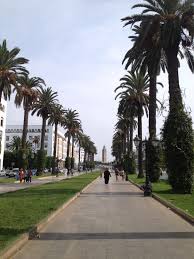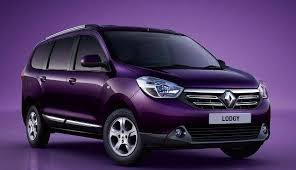The Economist
Rabat
Middle East and Africa
Morocco
Morocco has been stable, if stodgy, in a wobbly region
MOHHAMED V AVENUE in central Rabat is lined with palm trees and open-air cafés. At the top of the street, visitors trickle into Morocco’s recently inaugurated museum of modern art. It is one of many projects—including an opera house designed by Zaha Hadid and a high-speed train between Casablanca and Tangier—meant to advertise this quiet kingdom’s steady progress. As countries across the Middle East slide into deeper chaos, Morocco seems to be weathering the Arab uprisings, neither imploding nor imposing harsh repression.
Yet in the museum’s basement, the work of young Moroccan artists hints at the country’s many unsolved problems, and the fragility of its social peace. One artist has reproduced school textbooks as blocks of stone—a comment on the rigidity of an educational system that eats up a quarter of the government’s budget and yet, after decades of supposed reforms, is still ranked as one of the worst in the region. Another artist pokes fun at the golf courses and luxury property developments that are mushrooming across a country that suffers deep inequality.
In 2011, in response to a wave of protests across the region, King Mohamed VI passed a new constitution and promised reforms. He also co-opted the main Islamist party into government. Yet despite his lofty promises, most of the laws meant to give life to the new constitution are yet to be written. The press is muzzled and local human-rights groups are frequently harassed. The dark turn that the Arab uprisings have taken has dampened calls for change and any criticism of the king. The people do, however, have grievances over a lack of opportunities for the young and persistent inequality. The economy is expected to grow by 4.6% in 2015. Yet in this country of 33m, only 21,000 new jobs were created last year. Unemployment is, surprisingly, highest among young, urban, educated folk. One of the few things that punctures the picturesque calm of Avenue Mohamed V are protests by unemployed university graduates demanding government posts.
The gulf between the cities and the countryside is staggering. Tens of thousands of vulnerable women toil for low wages as seasonal workers picking fruit to be exported to Europe, or as under-aged wives who are de facto servants in their husbands’ homes.
The king himself has said the country cannot have “a two-speed system in which …the poor are excluded from the development process.” But to create more jobs, analysts say that Morocco must fight corruption, open up its economy and break monopolies. The question is whether the palace can foster fairness and openness without giving up some of its vast power and privileges.
So far Morocco has been lucky. Low oil prices have made it easier to reduce fuel subsidies. Worsening regional problems, such as terrorism and illegal immigration, have given the kingdom greater leverage with Europe, which needs its co-operation on precisely these issues. It is under little pressure, whether from foreign allies or citizens, to pursue real change. But that does not mean it shouldn’t.





